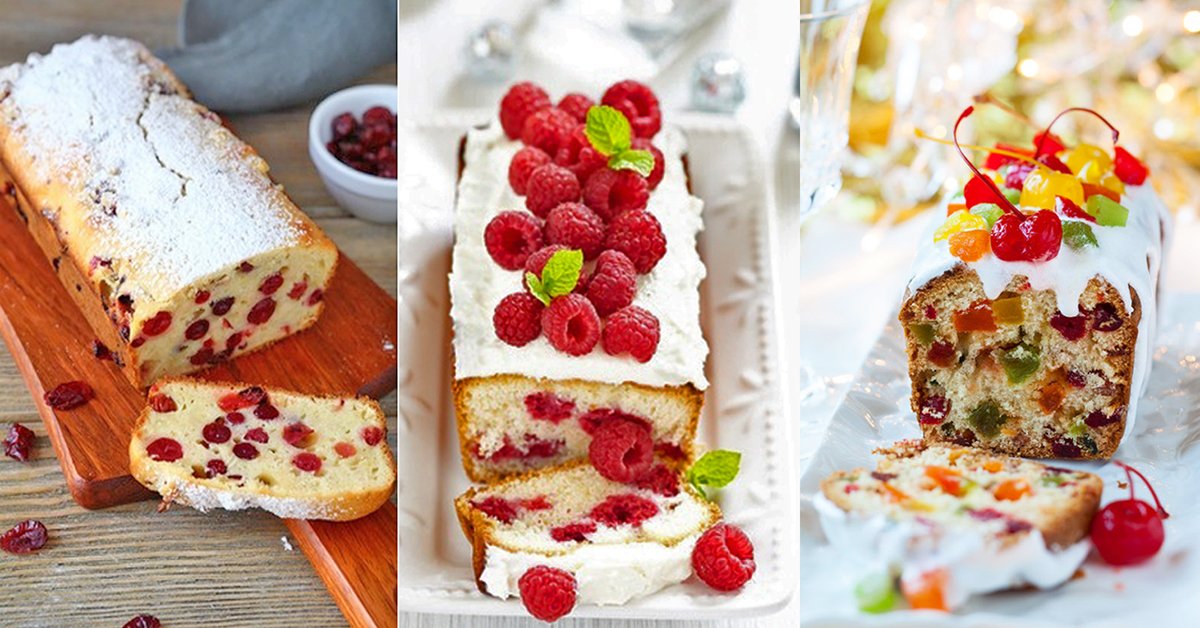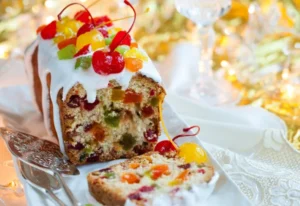Introduction
Fruitcake is a classic dessert enjoyed by people around the world. It is a rich, moist cake filled with a variety of dried fruits, nuts, and spices. The secret to a delicious fruitcake lies in the selection and combination of its essential ingredients. In this article, we will explore the importance of these ingredients and provide insights into baking the perfect fruitcake.
1. What is Fruitcake?
Fruitcake is a dense and flavorful cake made with candied or dried fruits, nuts, spices, and sometimes soaked in alcohol or fruit juice. It has a long shelf life and is often associated with holidays and special occasions. Fruitcake can be enjoyed on its own or paired with a cup of tea or coffee.
2. History of Fruitcake
Fruitcake has a rich history dating back centuries. It is believed to have originated in ancient Rome, where a mixture of barley mash, pomegranate seeds, pine nuts, and raisins was used to create a sweet, dense cake. Over time, the recipe evolved, and different regions added their own unique twist to the fruitcake.
3. Importance of Ingredients
The ingredients used in fruitcake play a crucial role in its taste, texture, and overall quality. Let’s explore some of the essential ingredients that make a fruitcake special.
3.1. Dried Fruits
Dried fruits such as raisins, currants, dates, cherries, and citrus peel are the backbone of a fruitcake. These fruits provide sweetness, chewiness, and bursts of flavor. It’s important to choose high-quality dried fruits and soak them beforehand to ensure they are plump and moist when baked.
3.2. Nuts and Seeds
Nuts like walnuts, pecans, and almonds add a delightful crunch and richness to the fruitcake. They also contribute essential fats and proteins. Additionally, seeds like poppy seeds or sesame seeds can be incorporated for added texture and flavor.
3.3. Spices and Flavorings
Spices like cinnamon, nutmeg, cloves, and allspice are essential for imparting warmth and depth of flavor to a fruitcake. These aromatic spices complement the sweetness of the dried fruits and create a harmonious balance. Flavorings like vanilla extract or almond extract can also be added to enhance the overall taste.
3.4. Liquor or Fruit Juice
Many traditional fruitcake recipes call for the addition of liquor, such as brandy or rum, to soak the dried fruits. The alcohol not only adds a unique flavor but also helps in preserving the cake. Alternatively, fruit juices like orange juice or apple cider can be used as a non-alcoholic substitute.
4. Traditional Fruitcake Recipe
A traditional fruitcake recipe typically involves combining soaked dried fruits, nuts, spices, flour, eggs, butter, and leavening agents. The mixture is then baked slowly at a low temperature to ensure even cooking and moistness. The result is a dense, rich, and flavorful cake that improves with age.
5. Vegan or Gluten-Free Fruitcake
For those with dietary restrictions or preferences, vegan or gluten-free fruitcake recipes are available. These recipes use plant-based substitutes for eggs and butter or alternative flours like almond flour or gluten-free flour blends. Despite the modifications, these fruitcakes can still be delicious and satisfying.
6. Tips for Baking a Perfect Fruitcake
Baking a perfect fruitcake requires attention to detail. Here are some tips to help you achieve excellent results:
6.1. Soaking the Fruits
Soaking the dried fruits in liquor or fruit juice overnight or for a few days helps them plump up and infuse with flavor. It also prevents them from drying out during the baking process.
6.2. Choosing the Right Pan
A heavy and sturdy pan with good heat distribution is ideal for baking fruitcakes. It ensures even cooking and prevents the cake from burning. Bundt pans or loaf pans are popular choices.
6.3. Baking and Cooling
Fruitcakes are typically baked at a low temperature for a long time to ensure they cook thoroughly without drying out. After baking, allow the cake to cool completely before removing it from the pan to maintain its shape.
6.4. Aging and Storing
To enhance the flavors, fruitcakes are often aged by wrapping them in a layer of parchment paper and storing them in an airtight container for a few weeks or even months. This aging process allows the flavors to meld and mature, resulting in a richer taste.
7. Fruitcake Variations
While the traditional fruitcake recipe is widely cherished, there are numerous variations available to cater to different preferences. Some variations include adding chocolate chips, substituting different dried fruits or nuts, or experimenting with unique spice combinations. Get creative and customize your fruitcake to suit your taste!
8. Fruitcake as a Gift
Fruitcakes make excellent gifts for friends and family during the holiday season. Their long shelf life and rich flavors make them a thoughtful and indulgent present. Consider wrapping the fruitcake in decorative paper or tin and adding a personal touch with a handwritten note.
9. Conclusion
In conclusion, fruitcake is a beloved dessert that owes its deliciousness to the selection and combination of essential ingredients. Dried fruits, nuts, spices, and flavorings create a symphony of flavors and textures in every bite. Whether you follow a traditional recipe or experiment with variations, baking a fruitcake is a delightful endeavor that brings joy to both the baker and the recipient.
FAQs
1. How long can I store a fruitcake?
Fruitcakes can be stored for several weeks or even months if properly wrapped and stored in an airtight container. The aging process enhances the flavors and texture of the cake.
2. Can I use fresh fruits instead of dried fruits in a fruitcake?
While dried fruits are commonly used in fruitcakes, you can experiment with fresh fruits. However, fresh fruits may affect the moisture content and shelf life of the cake.
3. Can I omit alcohol in a fruitcake recipe?
Yes, alcohol can be omitted from a fruitcake recipe. Fruit juices like orange juice or apple cider can be used as a non-alcoholic substitute to soak the dried fruits.
4. Can I freeze a fruitcake?
Yes, fruitcakes can be frozen for long-term storage. Wrap the cake tightly in plastic wrap and place it in an airtight container before freezing. Thaw the cake in the refrigerator before serving.
5. Can I make a fruitcake without nuts?
Certainly! If you have a nut allergy or simply prefer not to include nuts, you can omit them from the recipe or substitute them with seeds or additional dried fruits for added texture.



